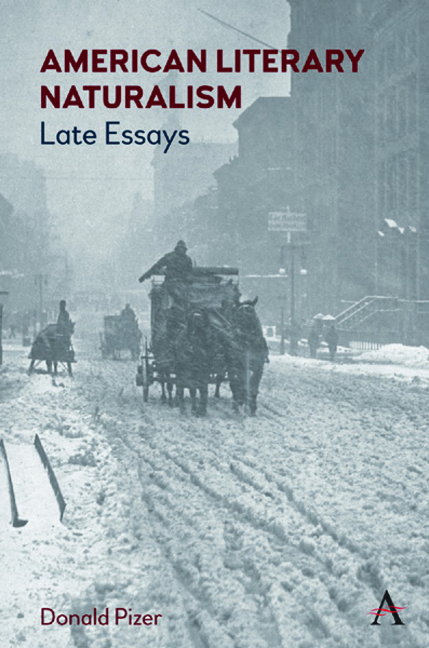9 - The Study of American Naturalism: A Personal Retrospective
Published online by Cambridge University Press: 22 February 2022
Summary
I did not begin graduate work at the University of California, Los Angeles, in the early 1950s intending to concentrate on late nineteenth-century American literature. For one thing, the doctoral examinations at UCLA at that time permitted only one exam out of the required four to be in American literature, which meant that a good deal of my attention was necessarily focused on English literature. For another, Leon Howard, who directed almost all graduate work in American literature at UCLA during this period, was interested primarily in colonial and antebellum literature. Nevertheless, from my earliest seminar in American literature, during my first year as a graduate student, in 1951–52, I was deeply drawn to the writers of the 1890s and especially to the work of Stephen Crane and Frank Norris. (I was later to write my dissertation on the early work and career of Hamlin Garland, another 1890s author, chiefly because of the availability of his manuscripts at the nearby University of Southern California.)
I did not know why I was attracted to these writers, but in hindsight I believe that it was because the world they depicted in their fiction was closer to my own experience than any other writing I was permitted to work on. At that time, I should note, and especially so in a conservative English department, as UCLA then was, very few dissertations were written on post-1900 literature, and “Modern” was not a fully recognized field within the discipline. But in the fiction of Crane and Norris, and later in that of Dreiser, I found subjects and themes that were “modern” in the sense that they touched upon experiences and concerns that had been part of my own life. I had not suffered, growing up in a New York working-class family during the 1930s and early 1940s, anything like the poverty of a Maggie or a McTeague. Nor had I, as a youth of 10 when the Depression ended and as too young by several years to serve in the Second World War, undergone the depth of soul-searching that social chaos and war had brought to a Presley or a Henry Fleming. But nevertheless, as someone who had been raised in a totally urban civilization and who had lived through depression and war, I instinctively sensed the relevance of the lives depicted in this fiction to my own life.
- Type
- Chapter
- Information
- American Literary NaturalismLate Essays, pp. 127 - 136Publisher: Anthem PressPrint publication year: 2020



